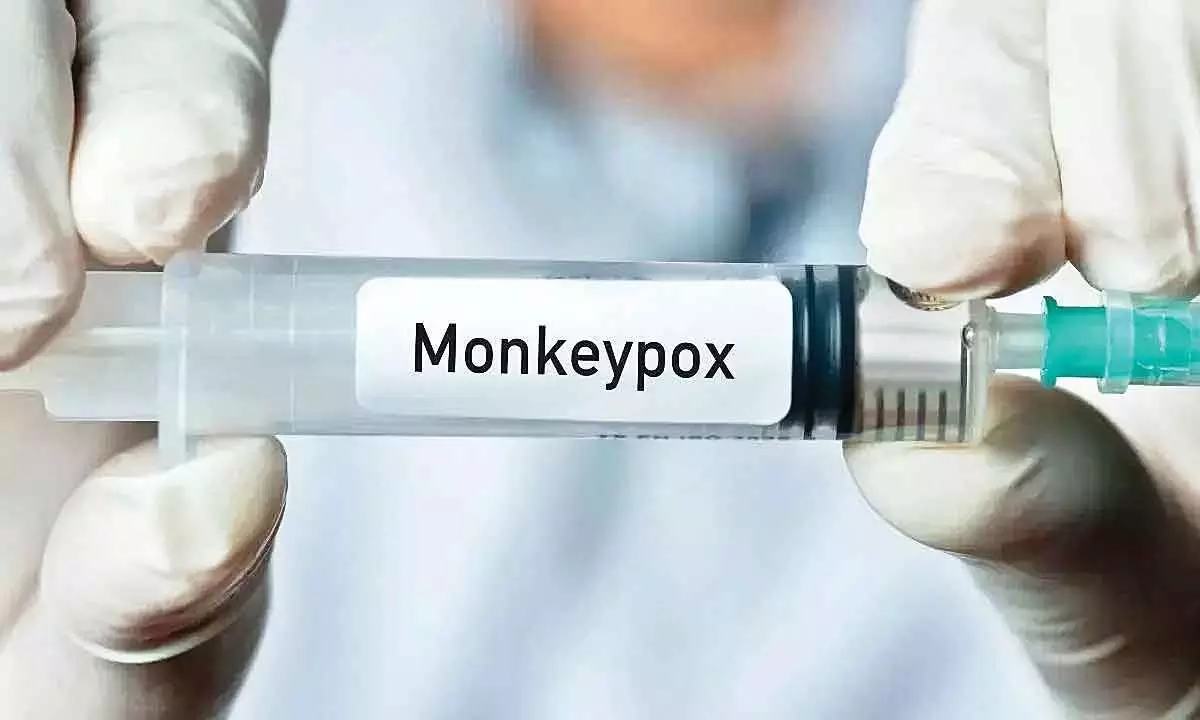Centre holds meeting with health experts on monkeypox

A meeting of top health experts called by the Centre on Thursday deliberated on the need for revisiting existing guidelines on management of monkeypox amid rising number of cases of the disease in the country.
New Delhi: A meeting of top health experts called by the Centre on Thursday deliberated on the need for revisiting existing guidelines on management of monkeypox amid rising number of cases of the disease in the country.
India has so far reported nine cases of monkeypox including one death.
"It was a technical meeting to revisit the existing guidelines," an official said.
The meeting was chaired by Dr L Swasticharan, director of Emergency Medical Relief and attended by officials from the National Aids Control Organisation, National Centre for Disease Control and World Health Organisation (WHO) representatives.
According to existing 'Guidelines on Management of Monkeypox Disease' issued by the Centre, any person having a history of travel to affected countries within the last 21 days presenting with an unexplained acute rash and symptoms like swollen lymph nodes, fever, headaches, body aches and profound weakness is to be considered to be a 'suspected case'.
A 'probable case' has to be a person meeting the case definition for a suspected case, clinically compatible illness and has an epidemiological link like face-to-face exposure, including health care workers without appropriate PPE, direct physical contact with skin or skin lesions, including sexual contact, or contact with contaminated material such as clothing, bedding or utensils.
A case is considered laboratory confirmed for monkeypox virus by detection of unique sequences of viral DNA either by polymerase chain reaction (PCR) and/or sequencing.
Defining contacts, the guidelines stated that a contact is defined as a person who, in the period beginning with the onset of the source case's first symptoms, and ending when all scabs have fallen off, has had one or more of the exposures-- face-to-face exposure, direct physical contact, including sexual contact, contact with contaminated materials such as clothing or bedding --- with a probable or confirmed case of monkey pox.
Cases can be prompted to identify contacts across household, workplace, school/nursery, sexual contacts, healthcare, houses of worship, transportation, sports, social gatherings, and any other recalled interactions.
Contacts should be monitored at least daily for the onset of signs/symptoms for a period of 21 days from the last contact with a patient or their contaminated material during the infection period. In case of occurrence of fever clinical/lab evaluation is warranted.
Asymptomatic contacts should not donate blood, cells, tissue, organs or semen while they are under surveillance.
Pre-school children may be excluded from day care, nursery, or other group settings.
The ministry guidelines state that human-to-human transmission occurs primarily through large respiratory droplets generally requiring prolonged close contact.
It can also be transmitted through direct contact with body fluids or lesions, and indirect contact with lesion material such as through contaminated clothing or linen of an infected person. Animal-to-human transmission may occur by bite or scratch of infected animals or through bushmeat preparation.
The incubation period is usually from six to 13 days and the case fatality rate of monkeypox has historically ranged up to 11 per cent in the general population and higher among children. In recent times, the case fatality rate has been around three to six per cent.
The symptoms include lesions which usually begin within one to three days from the onset of fever, lasting for around two to four weeks and are often described as painful until the healing phase when they become itchy.
The WHO had recently declared monkeypox a global public health emergency of international concern.
According to WHO, monkeypox is a viral zoonosis -- a virus transmitted to humans from animals -- with symptoms similar to smallpox although clinically less severe.








